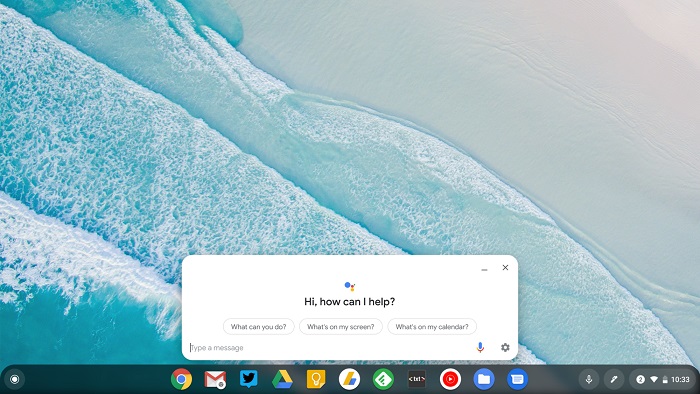Since Its Entry Into The World Of Computer Platforms, Chrome OS Has Received Special Credit In The Field Of Anti-Virus And Complete Protection Against This Category Of Malicious Programs. Google has extensive marketing in terms of security.
It has made its operating system comparable to other existing platforms. But the big question remains: Is this operating system really resistant to computer viruses? If this is true, how has Google achieved this great success?
To better understand the answer to this question, it is better to become a little more familiar with the term virus.

What is a Computer Virus?
Computer viruses fall under the umbrella of malicious programs, or malware, which, because they have malicious code, run independently when navigating to their target system, inject malicious code into healthy files without any problems, and contaminate the contents.
When they perform, they also perform themselves. When malicious code of a virus is released into the system, it can cause malicious actions such as data corruption, overwriting files, or even spreading multiple versions of the virus on a personal computer, slowing down, displaying a blue screen of death error, etc.
These are inevitable factors, but the critical point is that a virus is not destructive and requires an environment to run.
Operating systems usually have one or more formats for running software and computer programs, the most common of which is the EXE extension in Windows.
Therefore, a virus writer must develop their malicious program as an extension to distribute it on Windows systems or program the virus so that when they enter the target system, they will publish their malicious code in safe and infected executable files.
According to this statement, different operating systems, such as Windows, Macintosh, Linux, Chrome OS, Android, etc., are incompatible. For example, Android executable files (APK extension) in the Windows operating system (EXE extension) are not executable by any means (unless you install emulation software such as BlueStacks).
Accordingly, computer viruses are considered operating system-based programs and cannot be run publicly on all platforms. Therefore, the virus, which was developed specifically for the Windows operating system, is entirely non-malicious on the Mac OS.
Malware and computer virus developers often seek to maximize vandalism or steal more information, so it makes perfect sense to develop malware for popular platforms such as the Windows operating system, which is used by millions of users worldwide.
Now, in answer to whether the Chrome OS operating system is completely safe against computer viruses, ransomware, spyware, worms, etc., it should not be at all!
Because the platform is less popular and has a small and weak user base, virus developers are reluctant to develop malware. Still, Google’s claim that the operating system is more secure than other existing platforms is somewhat valid and not a lie. But how?
One of the main features contributing to the security of this operating system compared to other existing platforms is continuous updating and installation of update packages in less than a few minutes. Chrome constantly reviews the updated packages offered by Google and automatically downloads and installs them.
Updating the operating system and its protection subsystems effectively maintains security and prevents malicious agent activities.
In addition, Chrome OS performs a self-test each time the PC is booted. Any changes that may compromise the security of the platform are identified (for example, the infection of one of the Files by injecting infected virus codes into the system).
Another protective feature of Chrome OS, which shows Google’s intelligence and genius, is the sandboxing technique in the execution of content. This feature means that all browser windows, add-ons, Android applications, etc., are sandboxed.
Run in a completely isolated environment (sandbox) relative to another, and if a virus accidentally infects one environment, other sandboxes are entirely safe and secure.
It does not threaten them. This factor has not yet been implemented due to the complexity of other operating systems, such as Windows.
Is Chrome OS safe from any threats?
As mentioned before, no. Computer viruses are just some malicious tools, and given the features mentioned above, the Chrome OS platform is more secure than they are. Still, it should not be forgotten that this operating system is generally browser software and, therefore, vulnerable to other malicious agents such as malware add-ons, infected Android applications, and phishing sites.
In addition, if, for example, a plugin is run in non-sandbox mode, the computer’s safety will be compromised.
However, it should be noted that the descriptions in this section are not limited to the Chrome OS. All platforms are generally vulnerable to them, so take precautions such as guarding against phishing and scam sites, and do not enter information.
Personalities such as passcode passwords, not downloading Chrome browser extensions from third-party platforms, not activating Developer Mode, and keeping the system updated are some things that can be mentioned about all platforms.
FAQ
Is Chrome OS immune to viruses?
No—Chrome OS has strong security but can still face threats through apps, extensions, or sites.
What built‑in features help protect Chrome OS?
Sandboxing, verified boot, and automatic updates reduce risks and improve security.
How can users increase safety on Chrome OS?
Use trusted extensions, avoid suspicious downloads, and keep the system updated.